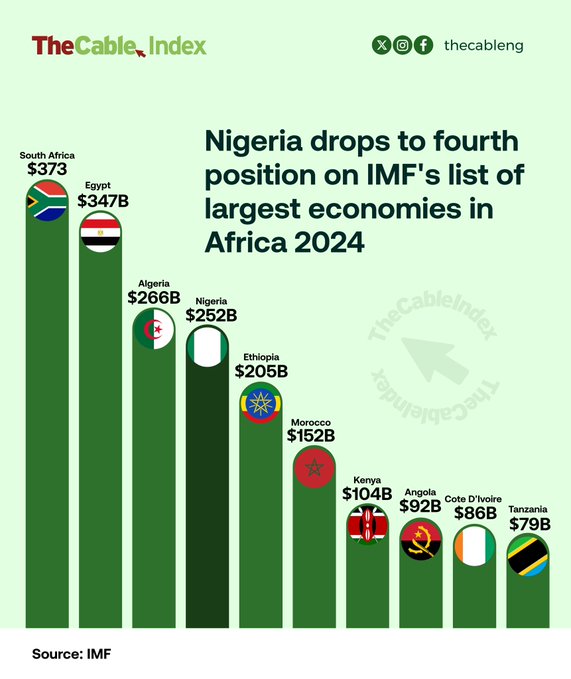
Many things happened last year including Nigeria losing its #1 position as Africa’s largest economy, to now #4. But I read one financial report where a company which has been printing losses in Naira, but reporting in USD, noted that it reduced its losses without mentioning that currency shift was the reason the loss reduced, not because of any operational efficiency or anything else for that matter!
Left and right, Nigeria has recorded a lost economic decade under the APC government and that statement is factual: “Nigeria’s GDP has plummeted under the All Progressives Congress (APC) government, dropping from $568.49 billion in 2014 to less than $260 billion in 2024.”
Of course, making such a factual statement will attract tribal bombs and partisan attacks as though not writing it will make the mess disappear. For those who care to look at issues on their merits, we have enough data to compare APC and PDP, and we can write that PDP was better in governing, than APC, using a decade of comparative data.
Register for Tekedia Mini-MBA edition 19 (Feb 9 – May 2, 2026): big discounts for early bird.
Tekedia AI in Business Masterclass opens registrations.
Join Tekedia Capital Syndicate and co-invest in great global startups.
Register for Tekedia AI Lab: From Technical Design to Deployment (next edition begins Jan 24 2026).
“Nigeria’s economic growth has been insufficient to raise living standards, weighed down by weak macroeconomic fundamentals and several structural constraints. Overreliance on the oil sector for fiscal revenues, exports, and FX inflows led macro stability to erode with the sector’s deteriorating performance in recent years. Low revenues—including due to a costly petrol subsidy, low tax rates, and weak tax administration—have limited state capacity and public service delivery.
“Inflation has remained high and escalating on the back of a relatively loose monetary policy and exchange rate depreciation. Structural factors holding back the country’s growth potential include lack of adequate energy and transport infrastructure, high domestic trade costs and foreign trade protectionism, widespread insecurity, weak institutions, and low levels of human capital development.”

---
Connect via my
LinkedIn |
Facebook |
X |
TikTok |
Instagram |
YouTube


